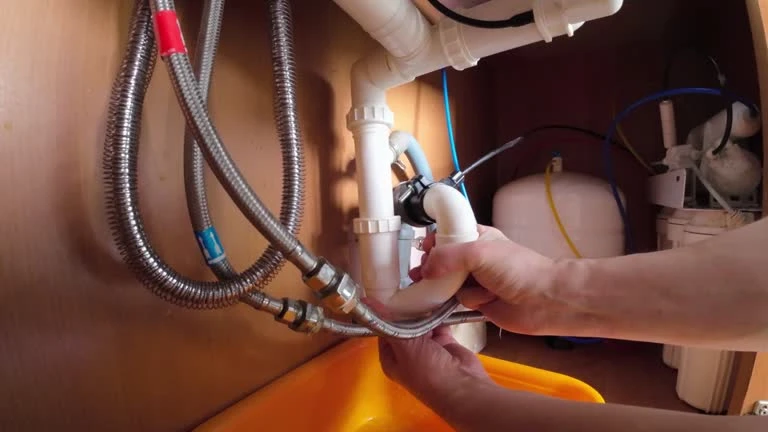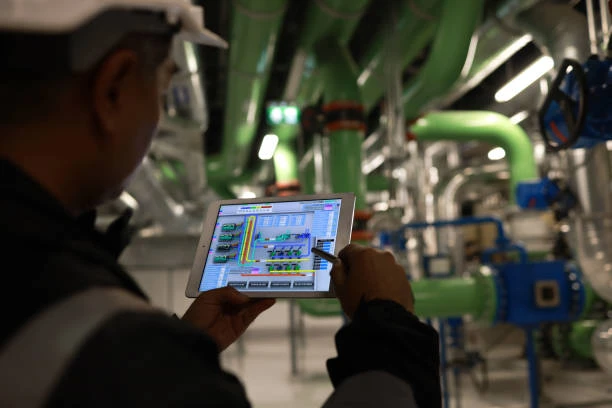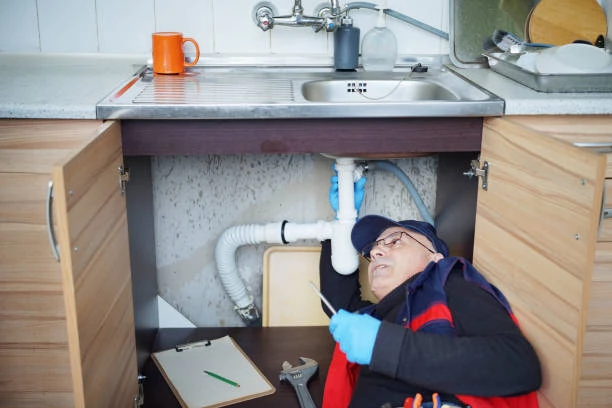Corrosion-resistant brass pipe fittings serve as essential components in plumbing and industrial applications, providing durability and reliability in various systems. These fittings, composed primarily of copper and zinc, offer unique advantages that make them suitable for diverse environments. Understanding their benefits, applications, and maintenance requirements ensures optimal performance and longevity.
Composition of Brass
Brass typically consists of copper and zinc in varying proportions, which determines its properties. The alloy’s composition can include small amounts of other metals, like lead or tin, to enhance specific characteristics. In recent years, the demand for lead-free brass fittings has increased due to health concerns, especially in potable water systems. These lead-free options maintain the corrosion resistance that brass is known for while ensuring safety.
Importance of Corrosion Resistance
Corrosion can significantly impact the performance of piping systems. Factors such as moisture, chemicals, and environmental conditions contribute to the deterioration of materials over time. Corrosion-resistant brass pipe fittings help mitigate these risks by maintaining structural integrity, ensuring efficient fluid flow, and preventing leaks.
Types of Corrosion
Brass fittings exhibit resistance to several types of corrosion, including:
- Uniform Corrosion: This type occurs evenly across the surface and is less common in brass due to its protective oxide layer.
- Pitting Corrosion: Brass’s resistance to localized corrosion prevents small pits from forming, which can lead to leaks.
- Stress Corrosion Cracking: Brass fittings resist cracking under stress, making them suitable for high-pressure applications.
These properties ensure that brass fittings maintain their functionality over time, reducing the likelihood of system failures.
Advantages of Corrosion-Resistant Brass Pipe Fittings
1. Durability
Corrosion-resistant brass pipe fittings exhibit remarkable durability, making them ideal for various applications. Their ability to withstand high pressure and temperature fluctuations ensures reliable performance in demanding environments. Users can expect these fittings to last for years, reducing the need for frequent replacements and maintenance.
2. Versatility
Brass fittings find applications across numerous industries, including residential plumbing, HVAC systems, and industrial processes. Their versatility allows them to handle various fluids, such as water, gas, and chemicals, making them suitable for diverse environments. This adaptability enhances their appeal in both residential and commercial applications.
3. Low Maintenance
Brass pipe fittings require minimal maintenance due to their corrosion-resistant properties. Once installed, users can rely on them to operate efficiently without the need for regular inspections or repairs. This feature proves especially beneficial in hard-to-reach areas where maintenance poses logistical challenges.
4. Excellent Sealing Capabilities
Brass fittings provide secure and tight seals, preventing leaks in piping systems. The precision-engineered designs ensure that the fittings maintain a strong connection, which is crucial for applications where even minor leaks can lead to significant issues.
5. Aesthetic Appeal
In applications where fittings are visible, brass provides an attractive appearance. Its golden hue adds a touch of sophistication, making it a popular choice for decorative plumbing fixtures in residential and commercial settings.
Applications of Brass Pipe Fittings
Brass pipe fittings serve a wide range of applications, ensuring reliability and efficiency in various systems:
1. Residential Plumbing
In home plumbing systems, brass fittings connect water supply lines to fixtures such as faucets, showers, and appliances. Their durability and corrosion resistance ensure that they perform well over time, even in systems subject to fluctuating temperatures and pressures.
2. Industrial Applications
Brass fittings play a crucial role in industrial processes, managing the flow of liquids and gases in pipelines. Their resistance to corrosive substances makes them suitable for chemical processing, manufacturing, and oil and gas applications. The ability to handle high-pressure environments ensures that these fittings can perform effectively in demanding settings.
3. HVAC Systems
Heating, ventilation, and air conditioning (HVAC) systems often use brass pipe fittings to control the flow of water and refrigerants. Their reliability in extreme temperatures helps maintain system efficiency and reduce energy costs. Brass fittings help ensure that HVAC systems operate smoothly and effectively.
4. Food and Beverage Industry
In the food and beverage sector, brass fittings help control the flow of liquids while adhering to strict health and safety regulations. Lead-free brass options guarantee that these fittings do not contaminate food products, making them suitable for food processing applications.
5. Fire Protection Systems
Brass fittings play a vital role in fire protection systems, controlling the flow of water in sprinkler systems and hydrants. Their reliability and resistance to corrosion ensure that they function correctly when needed, contributing to overall safety.
Selection Criteria for Brass Pipe Fittings
When choosing brass pipe fittings for specific applications, consider the following factors:
1. Material Composition
Select fittings made from lead-free brass to ensure safety, particularly in potable water systems. Understanding the alloy’s specific composition can help in choosing the right fitting for the intended use.
2. Pressure and Temperature Ratings
Evaluate the pressure and temperature conditions the fittings will encounter. Ensure that the selected fittings meet or exceed the necessary specifications for the application.
3. Size and Compatibility
Choose the appropriate size for the piping system. Compatibility with existing materials is crucial for ensuring a secure and leak-free connection.
4. End Connections
Brass fittings come with various end connection types, including threaded, soldered, and flanged. Select the connection type that matches your system’s requirements for seamless installation.
5. Certifications and Standards
Ensure that the selected fittings comply with relevant industry standards and certifications, particularly for applications involving drinking water or food processing. Compliance guarantees safety and reliability in critical applications.
Maintenance of Brass Pipe Fittings
While brass pipe fittings require minimal maintenance, regular inspections can enhance their longevity:
1. Visual Inspections
Conduct periodic visual inspections for signs of corrosion, leaks, or wear. Early detection helps prevent larger issues from developing.
2. Operational Testing
Regularly test the fittings by operating the connected system to ensure smooth functionality. Any resistance or unusual noises during operation may indicate the need for further inspection.
3. Cleaning
Keep the exterior of the fittings clean to prevent debris buildup that could interfere with operation. Use mild detergents and avoid harsh chemicals that may damage the brass.
4. Lubrication
Occasionally apply lubricant to the threaded connections to ensure smooth operation. This step can prevent wear and extend the service life of the fittings.
Environmental Considerations
Brass pipe fittings align with sustainability goals due to their durability and longevity. The use of brass reduces the need for frequent replacements, contributing to lower waste generation. Additionally, their resistance to corrosion minimizes the risk of leaks, conserving valuable resources and preventing environmental contamination.
In applications where brass fittings come into contact with potable water, the adoption of lead-free options helps ensure that water remains safe for consumption. This consideration aligns with public health initiatives aimed at reducing lead exposure in drinking water systems.
List of Top Brass Pipe Fittings Suppliers
| Company Name | Location | Years Of Experience | Certificates |
| IFAN | Zhuji, China | 1993 | ISO certification |
| ASC Engineered Solutions | USA | 2019 | ISO certification |
| Patel Precision Works | India | over 21 years | ISO certification |
| RED-WHITE VALVE CORP | USA | 1971 | ISO certification |
| SVF Flow Controls | USA | 1988 | ISO certification |
IFAN international standard for Brass Pipe Fittings
IFAN adheres to several international standards, ensuring the quality and reliability of its products. These include ISO 15875, GB-T 18992, DIN 16892, ASTM F877, ASTM F2788, BS 7291, BS EN ISO 15875, and CSA B137, among others. By complying with these rigorous standards, IFAN guarantees that its plumbing systems meet the highest global requirements for safety, durability, and performance. These certifications demonstrate IFAN’s commitment to delivering products that are widely accepted and trusted across various industries worldwide.
Conclusion
Corrosion-resistant brass pipe fittings play a vital role in plumbing and industrial applications, offering reliable performance, durability, and versatility. Their ability to withstand harsh environments makes them an essential choice for various systems, from residential plumbing to complex industrial processes. By understanding the benefits and proper maintenance of these fittings, users can ensure efficient and secure connections that contribute to the overall performance and longevity of their systems. As industries continue to prioritize safety, reliability, and sustainability, brass pipe fittings will remain a key component in achieving these goals.
Connect
IFAN is a Chinese manufacturer of plastic pipes, fittings and valves with 30 years of experience. If you are interest in IFAN copper fittings, copper valves, plastic pipes and fittings, please contact us. IFAN offers you a variety of standard pipes to meet your specific needs. Click below to learn more about IFAN’s wide range of affordable and cost-effective valve products and piping system related products.
We will reply your email or fax within 24 hours.
You can call us at any time if there is any question on our production.
For more information,pls visit our webside https://waterpipefitting.com/
Pls Mailto: [email protected]
Whatsapp: + 86 19857948982














Recent Comments